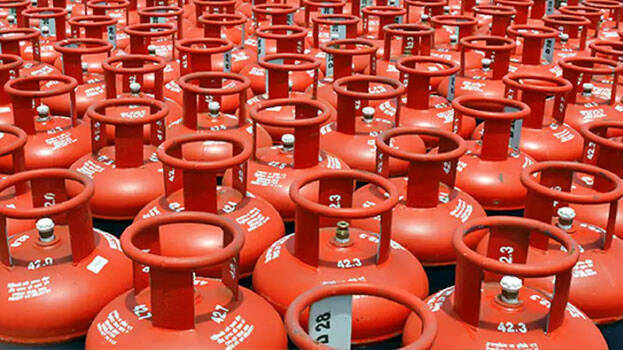

NEW DELHI: The Opposition is planning a strong protest against the government's decision to increase cooking gas prices by Rs 50 per cylinder. The meeting of opposition leaders today will deliberate the move. There are also plans to pass a resolution in the AICC session. The opposition alleged that the prices were increased shrewdly at the end of the Parliament session to not invite any discussion inside the house.
Petroleum Minister Hardeep Singh Puri has announced that the price of a 14.2-kg cylinder will increase by Rs 50. The price of a general category cylinder will increase to Rs 853, and the price of a subsidised cylinder under the Pradhan Mantri Ujjwala Yojana will increase to Rs 553.
The price of 14.2 kg LPG under Ujjwala Yojana will increase from Rs 500 to Rs 550 and from Rs 803 to Rs 853 for non-Ujjwala Yojana beneficiaries," Hardeep Singh Puri said. Last week, public sector oil companies reduced the price of cooking gas for commercial purposes. The price of 19 kg cooking gas cylinders used in hotels and other places was reduced by Rs 41. With this, the price of a cooking gas cylinder in Kochi became Rs 1790. Cooking gas prices in India change according to movements in the international market.
On March 1, the price of commercial LPG cylinders was increased by Rs 6 in major cities. However, the price of cooking gas for domestic consumption remained untouched during that time. Earlier, the central government had increased the excise duty on petrol and diesel by Rs 2 each. It is reported that the new rate will come into effect on April 8. Once the central government decision comes into effect, the excise duty on petrol will be Rs 13 and on diesel Rs 10.
With the crude oil prices dipping in the international market, it was expected of the central government to bring down fuel prices by around Rs 10. The government reasoned the excise duty increase as a move to prevent losing revenue and to avoid financial distress.
The Petroleum Ministry clarified that the retail prices of petrol and diesel will not increase as public sector oil companies will bear the responsibility of the duty increase.